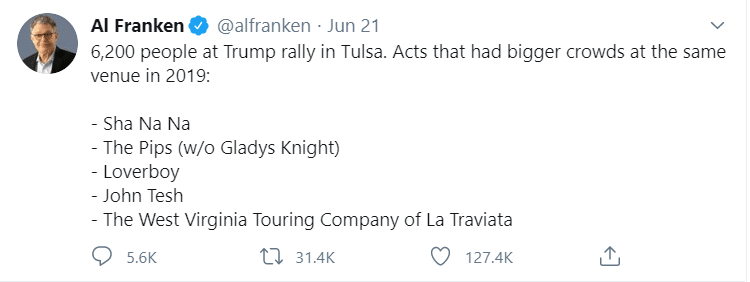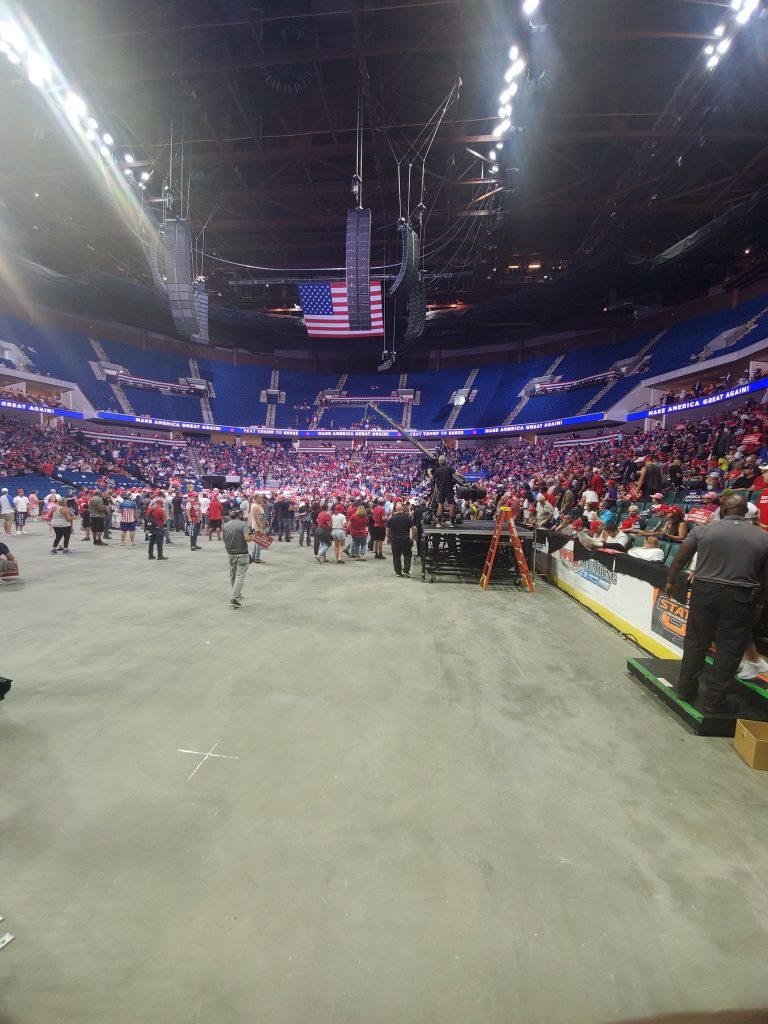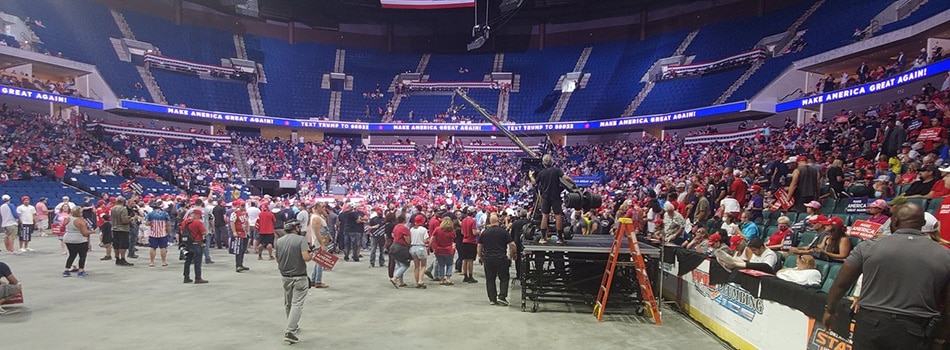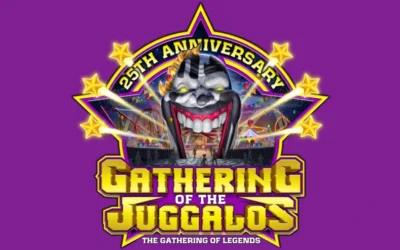K-Pop fans and TikTok users are supposedly be behind a campaign that greatly inflated expectations for attendance at a Tulsa, Oklahoma rally for President Trump’s reelection campaign which saw some 6,200 in attendance after reports of over a million tickets distributed.
News that attendance at the event was far below initial estimates – Trump campaign manager Brad Parscale tweeted that over a million tickets had been requested in the lead-up to the rally – began trickling out Saturday. News for the campaign had already been negative in the lead-up to the big day, as reports of several advance staff members testing positive for coronavirus surfaced just as the event was to kick off.
“When the President landed in Tulsa at 5:51 p.m. local time, the crowds his aides had promised him had failed to materialize,” reported CNN. “Air Force One flew over the arena, where Trump had been told thousands of supporters would be waiting to hear from him before he went inside, but saw nothing resembling the sea of people he’d been expecting.”
Plans for Trump and Vice President Mike Pence to address overflow crowds outside the venue were cancelled, and the crowd inside the BOK center turned out to be limited to approximately a third of the 19,000 patron capacity, according to the local fire marshal’s office.
Among the reasons for the disappointing attendance is thousands of tickets being reserved by K-Pop fans and teens responding to TIkTok videos, with no intention of ever being used.
“After Trump’s official twitter account invited supporters to request tickets to the event on June 11, K-Pop fan accounts encouraged their followers to register for the event and then not attend,” CNET.com reports. “TikTok videos with millions of views encouraged viewers to do the same.”
Opponents of President were quick to chime in with their two cents on the divorce between the campaign’s stated expectations for attendance and the actual crowd that turned up.
“You just got ROCKED by teens on TikTok who flooded the Trump campaign w/fake ticket reservations & tricked you,” tweeted Rep. Alexandria Ocasio-Cortez in response to a post by Parscale following the event.” Former Sen. Al Franken listed a number of events in 2019 that exceeded Trump’s campaign rally attendance at the same venue.

Trump’s campaign issued a statement pushing back against the supposed “hack” – indicating that it had weeded out “tens of thousands” of “bogus” phone numbers which had registered for tickets, blaming the low attendance on the media stoking fears of coronavirus at a large-scale events. It also touted some 4 million views of the rally across its digital channels.
“A week’s worth of the fake news media warning people away from the really because of COVID and protestors, coupled with recent images of American cities on fire, had a real impact on people bringing their families and children to the rally,” reads the statement, credited to campaign manager Brad Parscale. “For the media to now celebrate the fear they helped create is disgusting, but typical.”
Why would K-Pop fans be involved in such a political statement as deliberately inflating expectations to embarrass the President’s campaign? It has something to do with the nature of fandom of this particular subculture in music, according to CNN’s Julia Hollingsworth.
“The fact that K-pop fans may have been involved shouldn’t come as a surprise — it’s part of a long history of social activism and charity work led by online devotees,” she wrote.
Ever since fans were asked by K-pop idols to give to charity rather than send gifts to the artists, volunteer work and other charitable efforts have been linked to the culture.
“Fans practice such activities not only for local charities, but also as a way of promoting their stars,” Sun Jung of the National University of Singapore wrote in a 2012 research paper referenced in Hollingsworth’s article. Recently, K-pop fans were tied to fundraising on behalf of the Black Lives Matter movement, as well as flooding anti-Black hashtags such as #WhiteLivesMatter with images of the genre’s idols to blot out racist messaging spread via those hashtags.
It is impossible to know to what extent the effort to embarrass the campaign actually impacted attendance, but it is notable that gaming a ticket system appears to have, for the time being, dominated a presidential campaign news cycle.

Header photo via New York Times reporter Astead W. Herndon on Twitter https://twitter.com/AsteadWesley/status/1274465912951844866/photo/1




